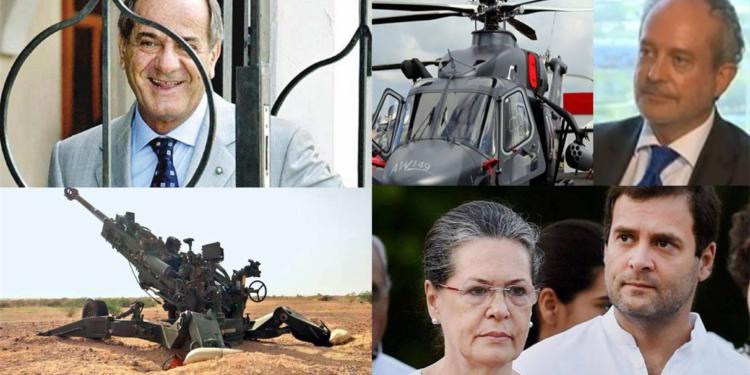The Congress party could be termed a ‘semi-feudal’ party. The party never tried to establish a rule-based system in the country despite the fact that it ruled the country for more than five decades. India functioned like a feudal system under Nehru-Gandhi family where access to corridors of power and kinship mattered more than anything else. The sycophancy to Nehru Gandhi family and loyalty to their family members was given ‘supreme importance’ in deciding who gets the sweeter deals. After independence, Congress party established socialist economic policies where the state has a patron-client relationship with the business community. The all-pervasive state which gave ‘few wise people’ too much power kept the country backward for decades.
In a rule-based capitalist economy, products are manufactured as per requirements of consumer and government policies are dictated by the greater good of the country. But in the crony-capitalist economy promoted by Congress party, the policies were dictated by middlemen and business families who have access to corridors of power. This ‘crony capitalism’ during Congress governments was most visible in defense deals. The Bofors scam which cost Rajiv Gandhi his popularly elected government involved the middlemen Ottavio Quattrocchi who was close to the Gandhi family.
In the AgustaWestland VVIP chopper deal, the PMO allowed changing the operational requirements in order to favor AgustaWestland and eliminate the competing bids. The operational flying height was reduced from 6,000 meters to 4,500 meters to help the company get Rs 3,564-crore order for 12 helicopters. The people involved in the scam included top political leaders of the Congress party. AgustaWestland middlemen Christian Michel claimed that Sonia Gandhi and Congress party Chief Rahul Gandhi were also involved in the deal.
Earlier, the business families linked Nehru-Gandhi family or other leaders of Congress party were linked to major defense scams as well. In a preliminary inquiry of 2012 Pilatus aircraft deal, CBI found the involvement of fugitive defense dealer Sanjay Bhandari who has family relations with Robert Vadra, son-in-law of Sonia Gandhi. Pilatus paid 7, 50,000 Swiss Francs to Bhandari’s Offset India Solution Pvt Ltd as commission. “We are probing what kind of services were rendered by Bhandari’s firm to Pilatus,” said an official.
The Nehru Gandhi family itself has a long history of involvement in defense scams. Back in 1948 V.K. Krishna Menon, a close aide of Nehru, signed a deal worth Rs. 80 lakh for the purchase of 200 army jeeps but the company delivered only 155 jeeps. But Jawaharlal Nehru accepted the deal and closed the case in 1955. Rajiv Gandhi’s involvement was found in Bofors scam and the person who came to Lok Sabha with the biggest majority ever lost the subsequent election due to this scam.
The Nehru-Gandhi family did not try to establish rule-based capitalist economy because patron-client relationship which the family wanted with common people of the country could not be continued in this system. In a rule-based framework, the family could not favor the sycophants and family members. The journalists and the entire left-liberal establishment which propagated and perpetuated their views Gandhi family could not be given gifts and deals in a rule-based system. The people who romanticize the greatness of one dynasty could be given bungalow in Lutyens’ Delhi only if there is space for crony capitalism.
The politicians of the Congress party always followed ‘stigmatized capitalist’. They never accepted capitalism as an economic ideology of the state because the party was carrying the baggage of ‘Nehruvian Socialism’ which was a mix of socialism and capitalism, although heavily skewed in favor of socialism. The 1991 economic reforms by Narasimha Rao reaped huge benefits for the country in terms of poverty alleviation and economic growth. But the Congress party and especially the scions of Nehru-Gandhi family never accepted that the Congress party has moved away from socialism to capitalism. Sonia Gandhi and her son Rahul Gandhi are both known to be socialist in their economic outlook.
The hesitation of the Congress party to accept capitalism as economic ideology forced the party to embrace crony capitalism. The industrial deals were being made behind closed doors and bidding was open to few selected people who were supporters of Congress party. The Nehru-Gandhi family did not like to be seen with industrialists in public although they were more than happy to meet them in Delhi circles. This double standard has harmed the country in many ways as the big contracts were given on the basis of whether the industrialist is close to the Gandhi family or some other Congress leaders. This aspect is particularly worrisome in terms of defense deals where the requirements of the armed forces were set aside in favor of the lobbyist (such as Sanjay Bhandari, Ottavio Quattrocchi and Christian Michel) having access to the Nehru-Gandhi family.
The Modi government is trying to achieve a rule-based capitalist economy where personal contacts with leaders will play no role as long as an industrialist is the highest bidder for the contract.




























